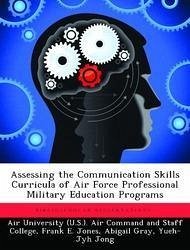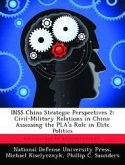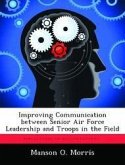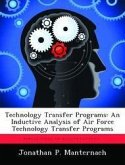A perception exists among mid-level career Air Force members that communication skills are important job skills for all ranks and that some individuals lack the necessary skills. Air University's (AU) Professional Military Education (PME) programs have historically been involved in fostering these skills. The purpose of this research is to provide recommendations to improve the teaching of communication skills within PME. The challenge of this study was meeting the expectations of the intended user, examining a complex, multidimensional issue in a real-world setting, and integrating the values and experiences of the researchers and intended users. This effort takes advantage of the unique student population of AU PME by applying technical policy research with a multi-dimensional methodology: an extensive literature search, a survey instrument, key personnel interviews, and archival records search. Careful analysis of the resulting data lead to numerous conclusions and recommendations for improvement. Among the conclusions are that (1) communication skills instruction must be based on the needs of its users; (2) communication is a process and communication skills should be taught and evaluated accordingly; (3) communication skills instruction is more effective when based on the contextual needs of its students; (4) individual communication skills should be developed commensurate with professional growth; (5) communication skills instruction is more effective when taught as an across-the-curriculum approach; (6) although relatively less expertise is needed to evaluate communication skills, a great deal of expertise is required to teach communication skills. These conclusions lead to the following recommendations: (1) establish a tiger team to develop a communication skills assessment methodology to determine the needs of Air Force personnel; (2) integrate feedback to students throughout the communication process; (3) teach communication skills in a context base form








